Israeli Strikes Target Iran-Backed Militia Missile Depots in Syria
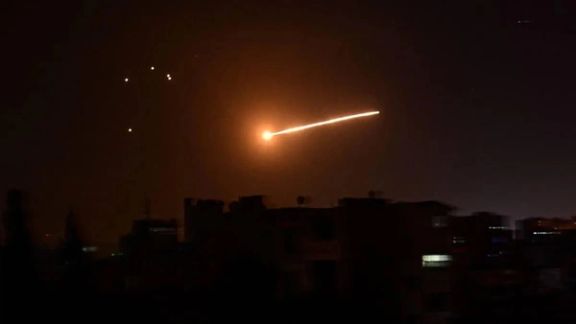
Strikes on Sunday attributed to Israel have targeted missile stockpiles of Iran-backed militias east of Syria's capital Damascus.

Strikes on Sunday attributed to Israel have targeted missile stockpiles of Iran-backed militias east of Syria's capital Damascus.
Residents of the region reported repeated blasts which came from "the warehouses of pro-Iran militias" in a mountainous area east of the capital, said the Britain-based Syrian Observatory for Human Rights, which has a wide network of sources inside Syria.
The head of the war monitor, Rami Abdel Rahman, said they do not know if the blasts were from an airstrike or ground operation, adding that it was still unclear if anyone was wounded or killed in the explosion.
Israel has been attacking what it has described as Iran-linked targets in Syria since 2017, to prevent Islamic Republic forces getting entrenched near its northern borders and weapons reaching the Lebanese Hezbollah.
The most recent reported Israeli strike was on August 7, when weapons and munitions warehouses and positions of Iran-backed militias around Damascus were targeted. At least four Syrian army soldiers were killed in the attack.
Iran intervened in the Syrian civil war in 2011 to save Bashar al-Assad’s regime, which had close ties with Tehran and allowed weapons and assistance to flow to Hezbollah in Lebanon. With crucial Iranian and Russian military assistance Assad has regained most of the territories lost to the rebels but remains highly dependent on Moscow and Tehran.
Iran says its officers serve in an advisory role in Syria at the invitation of Damascus. Hundreds of Iranian forces and thousands of proxy militiamen including senior officers have been killed in Syria during the war.
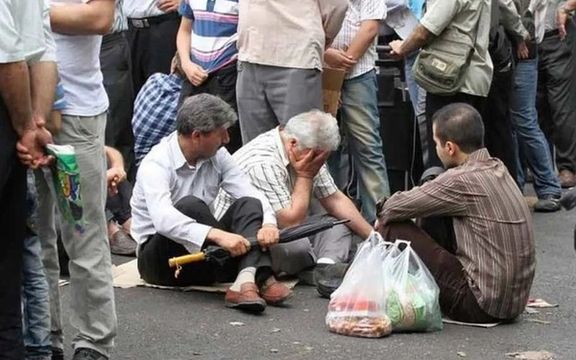
Not only is Iran's economic situation critical, but it is also ailing in terms of politics, culture, and ethics, a leading conservative newspaper stated in an editorial.
Pointing to "various forms of corruption in the government's management system," the Jomhuriye Eslami (Islamic Republic) daily recommended that government officials heed well-wishers and refrain from attributing "all of the country's problems to the enemies."
The newspaper accused government officials of isolating themselves within a bubble, entangled in illusions detached from societal realities. The daily also recommended that officials break free from this isolating bubble to reengage with the broader society.
Jomhouri Eslami stated that President Ebrahim Raisi's mandate aimed to rectify the corruption and deviations from principles during the populist government of former President Mahmoud Ahmadinejad (2005-2013). However, not only has this objective gone unmet, but the public also learns of fresh corruption cases within the government on a daily basis.
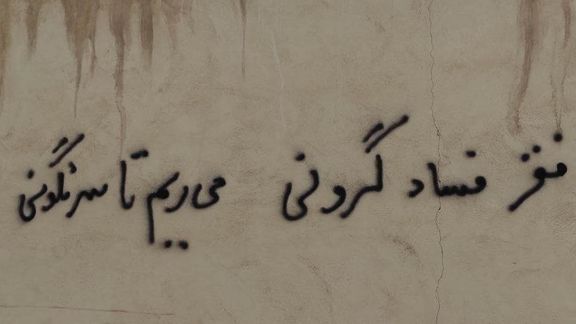
The conservative publication argued that given the prevailing circumstances, certain individuals become entangled in financial corruption due to their struggle to meet basic needs. Conversely, others succumb to political, cultural, and ethical deviations due to their excessive wealth.
However, the paper did not underscore the fact that the opaque political system, built upon loyalty to the regime, allows officials to engage in corruption and amass personal wealth.
It subsequently cited the recent "sex scandals involving certain prominent cultural officials in the country" and the "involvement of other officials in bribery, embezzlement, and money laundering," asserting that these incidents signify the nation's deteriorating state. The publication added that "last year, around 120 officials were apprehended for financial corruption, and halfway through this year, the tally has already reached 144."
In July, there was widespread outrage among Iranians as successive videos surfaced, revealing officials responsible for upholding moral standards and religious norms engaging in same-sex activities, a grave violation under Sharia law.
The daily further stated that these figures are alarming for a government that claims to be Islamic.
Meanwhile, Mostafa Derayati, a leading member of the reformist Unity of Nation Party told Rouydad24 website that "The government has ostracized the country's most capable officials and has handed over the affairs of the state to inefficient individuals."
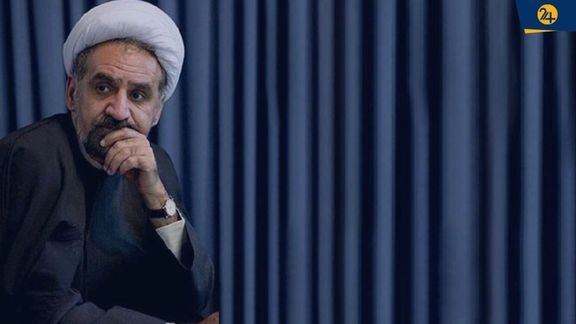
Adding that the current presidential administration is filled with inefficient officials, Derayati argued that capable figures were pushed into isolation when the hardliner Guardian Council disqualified tens of moderate and reformist candidates in the 2020 parliamentary and the 2021 presidential elections.
"It was evident that the governance of the nation was transitioning to a group of individuals lacking analytical acumen and the capacity to address the country's challenges," he remarked.
Derayati, a reformist member of the Islamic Studies Center, reiterated that today, even those who supported President Ebrahim Raisi in the 2021 elections are criticizing him. "In fact, the Raisi administration's performance has been so full of mistakes during the past two years that it is really hard to defend his government." He added, "We have handed over the affairs of the state to a government whose president has no executive experience. It was clear from the very beginning that he knew very little about management."
Another critic, lawmaker Ahmad Alirezabeigi, asserted that the statements made by Raisi's aides indicate either a lack of a comprehensive strategy for governing the state or, even if such a strategy exists, they lack the financial resources required to implement their envisioned objectives.
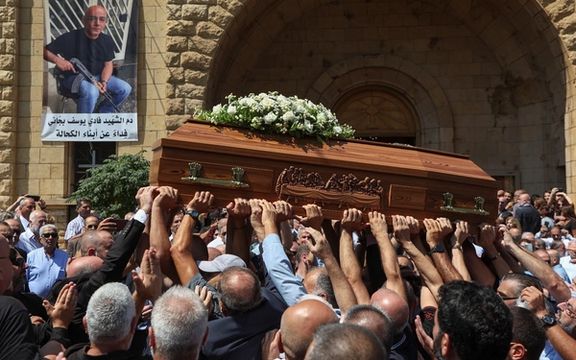
Lebanon's top Christian cleric has called for state control over weapons following a deadly clash between Christian villagers and the heavily armed Iran-backed group Hezbollah.
A Hezbollah member and a Christian resident were killed in Wednesday's exchange of fire in the village of Kahaleh, near Beirut, which began when a Hezbollah truck carrying ammunition turned over while driving through the area.
It was the deadliest confrontation between the Iran-backed Hezbollah and Lebanese who oppose it since clashes in Beirut two years ago, further rocking the stability of a country already suffering deep political and economic crises.
In his sermon on Sunday, cleric Patriarch Bechara Boutros al-Rai called for "all parties" and other elements of the country "to unite under the banner of the state, especially regarding the use of weapons".
"It is not possible to live on one land with more than one state, more than one legitimate army, more than one authority, and more than one sovereignty," Rai said, in an apparent reference to Hezbollah's arsenal.
Hezbollah, founded by Iran's Revolutionary Guards in 1982, is Lebanon's most powerful group. Its arsenal has long been a point of conflict in Lebanon, where its opponents accuse the group of undermining the state.
Lebanon has been suffering a four-year-long financial collapse that has marked its most destabilizing episode since the 1975-90 civil war. It was caused by decades of corruption and profligate spending by ruling politicians.
(Report by Reuters)
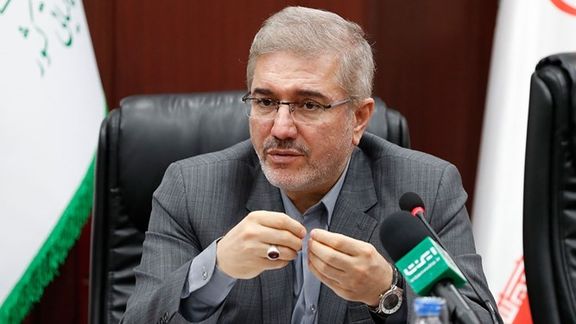
Iran's oil exports have surpassed the government's 1.4 million barrels per day target, the head of Iran's Plan and Budget Organization said on Sunday.
"Based on Iran's current budget, the government aims at exporting 1.4 million oil barrels per day, an objective which has now been surpassed thanks to the Oil Ministry's efforts," Davoud Manzour said.
The administration of Ebrahim Raisi based the budget of the current Iranian year (started March 22) on 1.4 million barrels of oil exports per day, however, the government expected to sell each barrel for $85. This would mean more than $43 billion in oil revenues from March 2023 to March 2024.
Iran’s heavy crude is worth about $80 on paper but the regime sells its oil clandestinely mostly to China with hefty discounts, to range from $40 to $50 a barrel, including payments to middlemen facilitating the illicit shipments.
Iran International reported in December that Tehran provides huge discounts to China, charging as little as $37 per barrel. A report by The Wall Street Journal in July said Iran is exporting the highest amount of crude oil in five years, but it offers discounts of up to $30 per barrel.
Prior to the re-imposition of US sanctions in 2018, Iranian oil exports were about 2.8 million barrels per day.
Iran's crude exports declined from 2 million to 200,000 barrels per day after the United States began imposing sanctions in 2018. Shipments began to increase in late 2020 when it became clear that President Joe Biden wanted to revive the JCPOA nuclear agreement with Iran abandoned by his predecessor. Critics have accused his administration of not enforcing the sanctions and allowing China to buy around one million barrels per day from Iran.
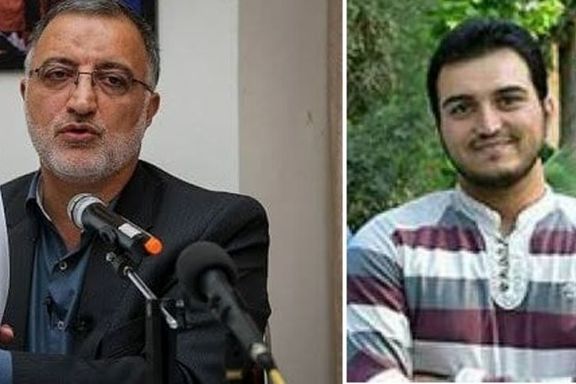
The Tehran City Council has grown weary of repeated interference in decision-making processes by the mayor's son-in-law, who holds no official position.
Ali-Asghar Ghaemi, a member of the Tehran City Islamic Council, stated on Sunday that an official warning has been drafted and signed by nine council members to address the issue, and it will soon be presented to the council's executive board.
The Islamic City Council of Tehran oversees the governance of the city, including the election of the mayor and the allocation of budgets for the Municipality of Tehran. Its 21 members are elected through a plurality-at-large voting system for four-year terms.
Ghaemi noted, "The interventions by [Mayor Alireza] Zakani's son-in-law in various entities and subsidiary public companies of Tehran Municipality have reached a point where even the authority to make seemingly simple decisions has been stripped away from the managers."
Alireza Zakani, the hardliner mayor of Tehran, had appointed his son-in-law, Hossein Haydari, as his advisor, while Haydari concurrently served as the head of the board of directors for a holding company responsible for the information technology of Shahr Bank (City Bank). Additionally, Haydari and Zakani’s daughter hold managerial roles in several other IT companies working with Iran's phone and internet service providers.
In response to public outcry over the mayor's nepotism, Zakani initially said that Haydari was intended to work for free, and later announced that he had rescinded Haydari's advisory position.
"The decision to revoke the advisory role for Zakani's son-in-law was commendable; nevertheless, it was expected that this action would be put into practice," Ghaemi added.
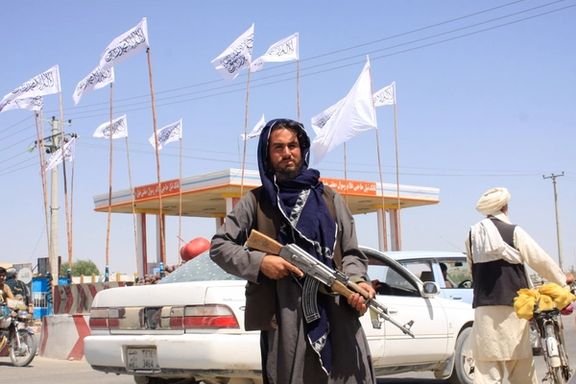
A newspaper affiliated with Iran's Revolutionary Guard has praised the Taliban in Afghanistan, mentioning the withdrawal of US troops as its main achievement.
The Javan newspaper highlighted several aspects, including the "withdrawal of US forces, ensuring political and security stability, increasing transparency, and reducing corruption," as positive aspects of the Taliban's governance.
On the occasion of the second anniversary of the Taliban returning to power, the newspaper stated that "despite the decline in support and financial aid [to Afghanistan] from the United States and NATO, the Taliban has successfully maintained the security, political, and economic structures of the country over the past two years."
Javan's article stated, "Corruption has diminished, and Afghanistan's position on the global transparency index has improved."
The IRGC outlet declared the most significant Taliban accomplishment was "the withdrawal of US and NATO forces" from Afghanistan. It also claimed that curbing the activities of Islamic State – Khorasan Province (ISIS-K), an affiliate of ISIS operating in Afghanistan, Pakistan, Tajikistan, and Uzbekistan, was another achievement.
Furthermore, the report acknowledged the suppression of armed resistance led by Ahmad Massoud, the leader of the National Resistance Front of Afghanistan, as an achievement during the past two years of Taliban rule.
Nonetheless, the paper also acknowledged shortcomings during the two years of Taliban rule, such as strict measures against girls and women, restrictions on ethnic and religious minorities, and an "imbalanced foreign policy," particularly a hopeful stance towards the US.
Earlier in the week, Fars News Agency – another IRGC-affiliated media outlet -- strongly objected to a tweet by Iran’s foreign minister criticizing the Taliban, alleging that it could have adverse consequences for bilateral ties.